The perceptions that other generations have of Millennials are pretty unfair. Millennials have a reputation for being overly sensitive, financially irresponsible, and lazy, to name a few.
Are you unsatisfied with the current circumstances surrounding Millennial life? Or are you looking for an author who understands your exact frustrations? Either way, this list has something for you.
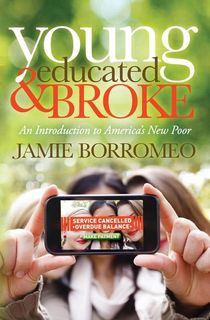
Young, Educated & Broke
Published in 2014, this book is both a memoir and a social commentary about the challenges that millennials faced after the financial collapse of 2008. Author Jamie Borromeo is among those who graduated into an uncertain job market, feeling the direct repercussions of higher powers failing them.
It made them question everything that they’d been raised to believe—questions regarding the American dream, and if they’d be able to achieve everything that they wanted, and that their parents wanted for them. Borromeo examines the perceptions that other generations hold about millennials, and tries to answer the lingering questions that the failing economy has left her generation with.
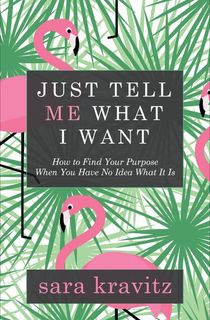
Just Tell Me What I Want
The 2008 financial crisis forced millennials to consider if their chosen career path was a viable option. Likewise, the COVID-19 pandemic forced many to evaluate whether or not their current career path was the one that they wanted to remain in.
With the high rates of burnout faced by workers across multiple industries, many people are considering reskilling or pivoting into an entirely new field. Others feel like they’re not entirely sure what they want to do. Altering your career choices and skills to suit both the market and the life that you’d like to lead can be incredibly tricky.
Life coach Sara Kravitz’s Just Tell Me What I Want is great for readers who have been told over and over to do what they love, but aren’t entirely sure what that may be.
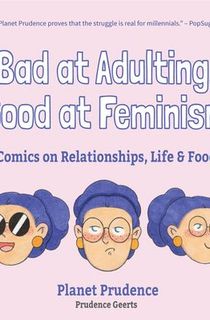
Bad at Adulting, Good at Feminism
Belgian illustrator Prudence Geerts uses comic strips and a feminist lens to portray the struggles faced by millennials. Her vividly drawn characters show the highs, lows, and occasionally awkward middle ground of coming into yourself as an adult.
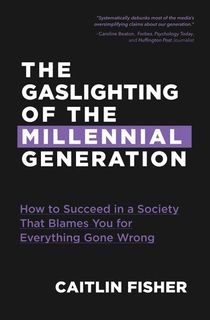
The Gaslighting of the Millennial Generation
Do you find yourself lying awake at night, wondering how the heck our generation got here? Do you see headlines constantly blaming millennials for their entitlement and supposed lack of drive? How many industries have millennials been blamed for tanking entirely? The housing market, the diamond trade, the fur trade? If we spent less money on quinoa, avocado toast, and that fancy $5 coffee every morning, we’d be able to buy a house, wouldn’t we? Well. Not necessarily.
Caitlin Fisher’s The Gaslighting of the Millennial Generation examines differences in the financial, political, and social realities and drawbacks faced by boomers, Gen-Xers, and millennials. This book shows how millennials have been less of a negative factor in the current climate, and more of a scapegoat.
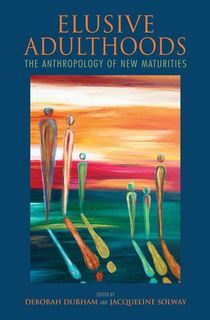
Elusive Adulthoods
While it’s often presented through an American lens, the radical shift of what it means to be an adult has become an international conversation. Elusive Adulthood is a collection of essays that examines multiple factors that influence what it means to be an adult in different cultures.
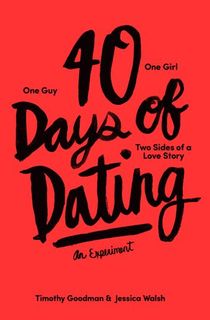
40 Days of Dating
Between friends with benefits, situation-ships, serial swiping, and the monotony of “hey, how are you!” conversations on dating apps, trying to find a relationship isn’t exactly fun right now. Trying to navigate the dating landscape can be tricky. When two close friends find themselves single at the same time, they decide to do a little experiment.
Combining the idea that doing something for forty days can create or change a habit, authors Timothy Goodman and Jessica Walsh decided to date one another. In 2013, they documented the results on a blog, tracking their feelings and findings with pictures, videos, and questionnaires, among other things.

Can't Even
First coined in the 1970s, the term burnout was originally used to describe the result of high-stress and high-demand work environments, often faced by those in the medical field. Since then, the term has been expanded to encompass the result of being highly career-focused and acting in ways that can be detrimental to people’s mental health and well-being.
Petersen’s book examines how this phenomenon has afflicted our generation, and how it affects our families, our finances, our personal relationships, and our prospects.

Childfree by Choice
The US birth rate has been in decline since 2007. There are multiple reasons, ranging from social and economic, to personal preference. Questions about being childfree are something that millennials often find themselves having to defend from boomers and Gen-Xers. Older generations like to shame millennials for not having children without thinking about the emotional and socioeconomic factors they face.
Dr. Amy Blackstone looks into the historical and societal perceptions around women being childfree and why the reception of being a childfree woman by choice is often harsh.

How to Skimm Your Life
Known for its blend of frankness and humor, The Skimm puts out a daily newsletter that gives readers information on several topics in a digestible format. Their content ranges from news to wellness to financial health. In this book, they answer questions that people have about work, travel, personal finances, mental health, wine tasting, national and global politics, and more.

Kids These Days
Having been part of the Occupy Wall Street movement, Malcolm Harris is familiar with how a group of people’s efforts can be wrongly categorized. Millennials have a reputation among older generations for being spoiled, apathetic, trophy-hugging, perpetual children. This doesn’t at all account for the fact that millennials are well-educated (and often drowning in debt as a result) and dedicated workers who have repeatedly been put at the mercy of a failing job market.
Harris discusses the factors that led to the current market, the financial realities, and the supposed privileges that millennials are purported to have.




